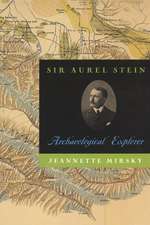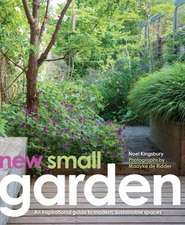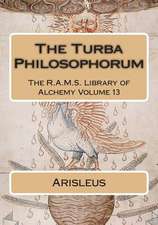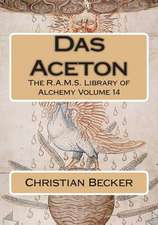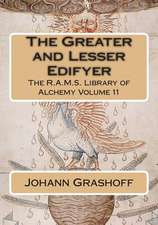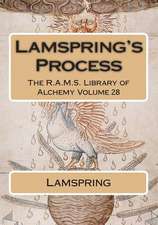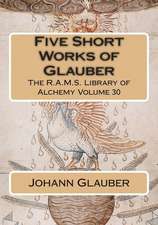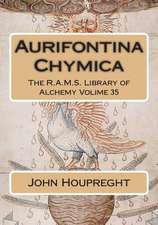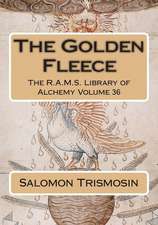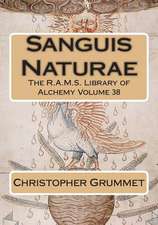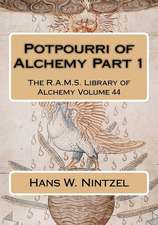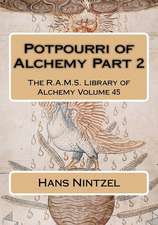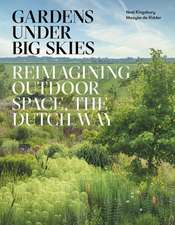Hybrid: The History and Science of Plant Breeding
Autor Noel Kingsburyen Limba Engleză Paperback – 15 noi 2011
Disheartened by the shrink-wrapped, Styrofoam-packed state of contemporary supermarket fruits and vegetables, many shoppers hark back to a more innocent time, to visions of succulent red tomatoes plucked straight from the vine, gleaming orange carrots pulled from loamy brown soil, swirling heads of green lettuce basking in the sun.
With Hybrid, Noel Kingsbury reveals that even those imaginary perfect foods are themselves far from anything that could properly be called natural; rather, they represent the end of a millennia-long history of selective breeding and hybridization. Starting his story at the birth of agriculture, Kingsbury traces the history of human attempts to make plants more reliable, productive, and nutritious—a story that owes as much to accident and error as to innovation and experiment. Drawing on historical and scientific accounts, as well as a rich trove of anecdotes, Kingsbury shows how scientists, amateur breeders, and countless anonymous farmers and gardeners slowly caused the evolutionary pressures of nature to be supplanted by those of human needs—and thus led us from sparse wild grasses to succulent corn cobs, and from mealy, white wild carrots to the juicy vegetables we enjoy today. At the same time, Kingsbury reminds us that contemporary controversies over the Green Revolution and genetically modified crops are not new; plant breeding has always had a political dimension.
A powerful reminder of the complicated and ever-evolving relationship between humans and the natural world, Hybrid will give readers a thoughtful new perspective on—and a renewed appreciation of—the cereal crops, vegetables, fruits, and flowers that are central to our way of life.
With Hybrid, Noel Kingsbury reveals that even those imaginary perfect foods are themselves far from anything that could properly be called natural; rather, they represent the end of a millennia-long history of selective breeding and hybridization. Starting his story at the birth of agriculture, Kingsbury traces the history of human attempts to make plants more reliable, productive, and nutritious—a story that owes as much to accident and error as to innovation and experiment. Drawing on historical and scientific accounts, as well as a rich trove of anecdotes, Kingsbury shows how scientists, amateur breeders, and countless anonymous farmers and gardeners slowly caused the evolutionary pressures of nature to be supplanted by those of human needs—and thus led us from sparse wild grasses to succulent corn cobs, and from mealy, white wild carrots to the juicy vegetables we enjoy today. At the same time, Kingsbury reminds us that contemporary controversies over the Green Revolution and genetically modified crops are not new; plant breeding has always had a political dimension.
A powerful reminder of the complicated and ever-evolving relationship between humans and the natural world, Hybrid will give readers a thoughtful new perspective on—and a renewed appreciation of—the cereal crops, vegetables, fruits, and flowers that are central to our way of life.
Preț: 150.09 lei
Nou
Puncte Express: 225
Preț estimativ în valută:
28.72€ • 30.07$ • 23.76£
28.72€ • 30.07$ • 23.76£
Carte disponibilă
Livrare economică 15-29 martie
Livrare express 01-07 martie pentru 35.08 lei
Preluare comenzi: 021 569.72.76
Specificații
ISBN-13: 9780226437132
ISBN-10: 0226437132
Pagini: 512
Dimensiuni: 152 x 229 x 33 mm
Greutate: 0.65 kg
Editura: University of Chicago Press
Colecția University of Chicago Press
ISBN-10: 0226437132
Pagini: 512
Dimensiuni: 152 x 229 x 33 mm
Greutate: 0.65 kg
Editura: University of Chicago Press
Colecția University of Chicago Press
Notă biografică
Noel Kingsbury is a horticulturalist and writer, and the author of many books, including Designing with Plants and Natural Gardening in Small Spaces, and coeditor of Vista: The Culture and Politics of Gardens.
Cuprins
Acknowledgments
A Note on Names
Introduction
Part One
From the Birth of Agriculture to the Birth of Genetics
One. Origins: The Domestication of Plants
Two. Landraces: Bedrock of Traditional Agriculture
Three. “Improvement”: The Agricultural Revolution
Four. Vegetable Mules: The Beginnings of Deliberate Breeding
Five. Empire: Globalization in Earnest
Six. Breakthrough: Gregor Mendel
Seven. Germination: Mendelism and Plant Breeding in the Early Twentieth Century
Eight. Luther Burbank: Miracle Worker or Charlatan?
Nine. “Let History Judge”: Plant Breeding and Politics in the USSR
Part Two
Flowering of a Technology
Ten. Hybrid! Corn and the Brave New World of F1 Hybridization
Eleven. Cornucopia: Genetics Opens up the Horn of Plenty
Twelve. Green Revolution: Can Plant Breeding Feed the World?
Thirteen. Ornament: Furnishing Our Gardens
Fourteen. Ownership and Diversity: Issues of Property Rights over Plant Genetic Resources
Fifteen. Conclusions
Technical Notes
Bibliographic Essay
Works Cited and Consulted
Index
A Note on Names
Introduction
Part One
From the Birth of Agriculture to the Birth of Genetics
One. Origins: The Domestication of Plants
Two. Landraces: Bedrock of Traditional Agriculture
Three. “Improvement”: The Agricultural Revolution
Four. Vegetable Mules: The Beginnings of Deliberate Breeding
Five. Empire: Globalization in Earnest
Six. Breakthrough: Gregor Mendel
Seven. Germination: Mendelism and Plant Breeding in the Early Twentieth Century
Eight. Luther Burbank: Miracle Worker or Charlatan?
Nine. “Let History Judge”: Plant Breeding and Politics in the USSR
Part Two
Flowering of a Technology
Ten. Hybrid! Corn and the Brave New World of F1 Hybridization
Eleven. Cornucopia: Genetics Opens up the Horn of Plenty
Twelve. Green Revolution: Can Plant Breeding Feed the World?
Thirteen. Ornament: Furnishing Our Gardens
Fourteen. Ownership and Diversity: Issues of Property Rights over Plant Genetic Resources
Fifteen. Conclusions
Technical Notes
Bibliographic Essay
Works Cited and Consulted
Index
Recenzii
"Shoppers who shun genetically modified foods in favor of 'natural' fruits and veggies may be in for a surprise. Horticulturalist Kingsbury's lively history documents the history of human meddling with plant genes since the dawn of agriculture."
"The reason you and billions of other people will eat today is a century-long effort to increase the yield of crop plants. Hybrid tells the story of the quiet heroes behind this triumph. Noel Kingsbury has written a fantastic history of a subject that should become much better known."
“I will never look at a slice of bread or grain of rice the same way, having read Hybrid. By recounting the history of plant breeding, the author has revealed the many choices made in creating the crops of today and yesterday, and challenges us to think about our choices for tomorrow.”
"An evenhanded history of plant breeding."
“In plant breeding, just as in evolution, genetic variety is the raw material of success. Hybrid is the story of how the genes that make a fat corn cob, a luscious apple, a brilliantly orange carrot or a high yielding strain of rice have traveled by serpentine paths to reach the genomes of the crops that we so depend on and yet so take for granted. In Hybrid we learn that there was a green revolution in eleventh-century China when a visionary emperor imported new strains of rice from Indochina; how working men in nineteenth-century Britain made a sport of competitive gooseberry breeding, and how a German doctor discovered hybrid vigor in plants. Hybrid the book displays, like hybrids themselves, all the marvelous fruit of miscellany.”
“A magnificent achievement—Kingsbury tells this gripping story, with a large cast of characters across the entire span of human civilization, with wit, passion, and erudition.”
"Kingsbury, a horticulturist, has written an informative and readable account of how the plants on our plates came to be. He introduces readers to the unlikely ancestors of today's kitchen-friendly vegetables: scraggly weeds that became cereal crops, a wild grain that turned into an ear of corn, and other ancestral oddities, all transformed by people, keen to cultivate nutritious and tasty foods. Humans domesticated plants like animals, encouraging, selecting, and changing their genetic blueprint. Check out competitive gooseberry breeding in nineteenth-century Britain. It's wry, or is that rye?"
"Breeders have taken an active role in plants' reproduction throughout human history."
“Thoughtful, well researched and refreshingly broad in scope, Noel Kingsbury’s Hybrid took me out of my immediate area of expertise (plants and garden history) and opened my eyes to the way previously unsung plant breeders have transformed societies. Accessible to specialists and non-specialists, it should be essential reading for anyone wishing to take an informed view on the future direction of biotechnology.”
"Artfully linking human cultural evolution and the 10,000-year history of plant breeding, Kingsbury moves fluidly between the art and science of plant breeding and the growth of increasingly complex human society and politics. He convinced me, at least temporarily, that plant technologies have been a major contributor to many important developments in human history. . . . Hybrid provides an informative tour of plant breeding through time, its interface with society and cultural evolution, and the people who contributed to this history. Kingsbury’s account should be required reading for students preparing for a future as a plant breeder, geneticist, or molecular biologist. Fortunately, that requirement should prove unnecessary—the book is engaging at many levels, and I expect many scientists and lay readers to pick it up on their own accord.”
"A novel might be hard pressed to imagine some of the incredible stories covered in this book."

